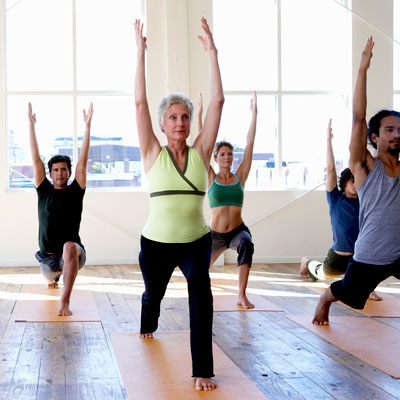
Protect your joints
You
should always be thinking about your joints, even those that are
currently symptom-free. And remember, no task is too small. Instead of
lifting a heavy pot, slide it across the counter; use a shoulder to open
a door rather than your hand; and hold books in the palm of your hands,
not with your fingers.

Use hot and cold treatments
Applying heat to an area with a heating pad or
chilling out with an ice pack or ice water can soothe your joints and
muscles. Alternating hot packs with cold ones can also offer powerful
relief. But, as with exercise, don't overdo it. Talk to a health-care
provider about how to use heat and cold safely.

Eat omega-3s
Several studies suggest that people with RA may
benefit from fish oil supplements, which contain inflammation-fighting
omega-3 fatty acids. They're especially valuable to RA patients, who are
said to have a higher risk of cardiovascular disease.

Get exercise
Exercise
can give you more energy, improve your mood, and, most importantly,
keep joint pain at bay—if you feel physically capable of working out.
Walking, cycling, swimming, and light weight training done three times a
week for 30 minutes are options, but check with your doctor to make
sure they are safe, and know your limits. Don't exercise when joints are
inflamed; take a break if you feel pain; and alternate positions
periodically when performing tasks such as gardening or cooking.

Don't smoke
Smoking
is a lifestyle factor that is known to increase the risk of RA. It is
also associated with more severe symptoms and joint damage in those who
have been diagnosed with the condition.

Consider counseling
Cognitive
behavioral therapy, a type of psychotherapy that helps people identify
problems in the way they think and act and encourages them to change
their behavior, can be helpful if you have RA, especially if you are
suffering from depression. Counseling can also help you cope with the
other stresses and strains of chronic illness.

Try yoga
Yoga's
emphasis on stretching, whole-body well-being, and group involvement
makes the practice especially relevant to some arthritis sufferers.
Although the scientific evidence of arthritis-specific benefits is
limited, it's still recommended by the Arthritis Foundation.
http://www.health.com





0 comments:
Post a Comment